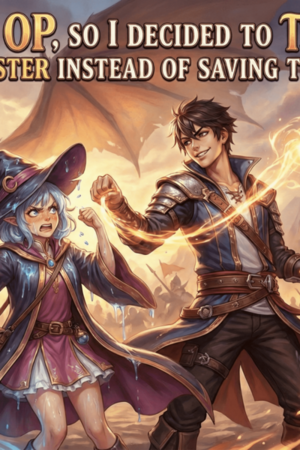Chapter 10:
Pickin' seeds, then plantin' 'em, just like normal... or not.
Lu's Boys and the Man From Earth
Chapter Twenty: Pickin’ Seeds and Plantin’ Dreams
We’d barely finished sweepin’ out the last kernel dust from the fermentin’ shed when Lu brought me a folded note and a tight smile.
“Gus says the co-op’s stocked up. Time to plan next season if we wanna stay ahead.”
That’s how I found myself and all six boys crammin’ into the back of the flatbed, headin’ toward town with Lu ridin’ shotgun and a notebook already full of scribbled crop ideas.
Corn had treated us right, and the barley was comin’ up fine, but I had a mind to diversify. Keep us fed, keep us solvent, and keep the boys from gettin’ too bored. Idle hands and all.
The co-op wasn’t much more than a glorified warehouse with a few shacks attached—but mercy, it had shelves higher than any barn, and rows of seed bins that smelled like spring.
We walked in and got swallowed up in a swirl of burlap bags, catalog posters, and hand-scrawled chalkboards listing varietals I ain’t heard of since college: heirloom tomatoes, ghost peppers, sunburst squash, dragon beans, moon melons—whatever the heck those were.
“I want some of these purple carrots!” Seis hollered.
“Can we grow marshmallows?” asked Dos, squinting at a picture of white blooms.
“That’s a cotton plant, son.”
Lu chuckled behind me. “Might want to rein them in before they plant candy.”
I flagged down the rep at the front desk—a wiry woman with a sunhat too big for the room and a clipboard full of warnings.
“Name’s Jess. You the new farm on the southern ridge?”
“That’s us. Ron Hosen.”
She gave me a good once-over. “You look like a man who just ran a hectare of corn through a still.”
“That obvious?”
“Only to someone who’s done it.”
We talked shop for a bit, and I told her I wanted to expand—maybe another two hectares, mix in some high-value crops, things we could eat, sell, or still. Trouble was, I wasn’t sure what suited this sun-drenched soil or my greenhorn workforce.
Jess tapped her pencil against the clipboard. “Well, you got sun twenty-four-seven, rain twice a week thanks to the climate rig, and your soil’s mostly loam with mineral kick from the lower shelf layers.”
I blinked. “And you figured that out from lookin’ at me?”
“Nope. Gus told me you’d be in today, so I looked up your plot.”
I liked her already.
“Go with legumes to boost nitrogen,” she said, pointing to a chart. “Beans, peas, maybe chickpeas. Add in hardy stuff that won’t burn out—sunflowers, sorghum. Sorghum’s drought-resistant and sells well to bakeries. And since you’re distillin’—try sugar beets. They’ll ferment nice, and animals love the mash leftovers.”
I scribbled it all down while Lu peered over my shoulder, noddin’. “What about a small strawberry patch?” she asked. “For the kids. And maybe… lavender?”
Jess grinned. “Lavender’ll keep bugs down. Good thinkin’.”
The boys, meanwhile, had picked out more than a dozen seed packets with zero concern for practicality. Watermelon. Popcorn corn. Something called 'Zebracorn' that promised to grow striped ears. I narrowed it down to a few we could test in a quarter plot—just for fun.
We left with three sacks full of seed, a paper receipt, and a box of freebies from Jess marked “trial use.” I never trusted free things, but Lu was smilin’, so I figured it couldn’t be too bad.
Back home, we unpacked everything and sorted it by type. The boys stacked seed bags like treasure hoards, and Lu got busy sketchin’ a new layout for the field rotation.
Jess’s advice stuck in my craw—in a good way. I liked folks who were smart but didn’t rub it in your face. And I liked even more that she understood what we were tryin’ to do.
That night after supper, I stood out by the edge of the cornfield, holdin’ a scoop of sunflower seed in my hand and starin’ at the endless light.
“Don’t matter that the sun never sets,” I muttered. “We’re gonna grow somethin’ real here.”
And with the soil warm underfoot and Lu’s laughter carryin’ from the porch, I believed it.
Chapter Twenty-One: Turnin’ Earth and Turnin’ Heads
Ain’t nothin’ in this world smells quite like freshly turned earth. Maybe bacon on a cold mornin’, or Lu’s pie crust when it’s just startin’ to brown—but the soil? It hits different. Like a promise that ain’t been broken yet.
We hit the fields early, just after the boys had scarfed down Lu’s thick toast and eggs. I fired up the big tiller Gus let me borrow—a growlin’, gas-guzzlin’ beast that shook your bones when it roared to life. Uno and Tres helped steer the mule with the seed spreaders, while Quattro and Seis followed with rakes, tryin’ their best to smooth out the furrows.
Lu and the rest were near the garden plot, markin’ off the new rows for strawberries and lavender. She was hummin’ some tune I didn’t recognize, but it sure made the work go down easier.
We spent hours tillin’ two fresh hectares. The sun, as usual, just hung there like a lazy porch cat—always up, always watchin'. Sweat soaked my shirt clean through, but I didn’t mind. The land was soft, the boys were gettin’ better at their work, and my boots were full of dirt. Felt like livin’.
Back at the still, Dos and Quattro were sterilizin’ jars while Uno stirred the mash like he was part of a moonshine orchestra.
“How’s the honey pilsner holdin’ up?” I asked, sniffin’ the air.
Uno wiped his brow with a sleeve. “It’s clearin’ up real nice. Should be ready to bottle by tonight.”
“Good. ‘Cause we got a request.”
Turns out that saloon over in the north district—The Lazy Star, I think they called it—had sent word. Folks were drinkin’ our cider dry, and the last shipment of pilsner had sold out in two days flat. They wanted six more barrels, and fast.
I sat on the porch with Lu, goin’ over numbers scratched into the back of a feed sack.
“We barely got enough to cover the order,” I muttered. “And that leaves nothin’ for home use.”
“We can stretch the cider,” she said. “Maybe water it down just a hair for our own supply.”
I frowned. “Feels wrong to do without on our own farm.”
“But it feels worse to turn down a steady customer.”
She was right. She usually was.
So we bottled what we had, labeled each with that rough logo Uno had carved into a stamp, and loaded it into crates. Quattro rode shotgun while I made the delivery.
The saloon owner, a burly fellow with eyebrows like raccoons, gave a whistle when he saw us.
“Tell ya what, farmer,” he said, “you keep sendin’ us this good stuff, and I’ll put your name on the sign.”
“Put the drink on the sign, not me,” I said with a grin. “Folks get confused and try to order me straight up.”
Back home, the boys were already askin’ if we could brew more. Quattro wanted to try raisin wine, and Seis thought maybe the beet mash we’d stored might work for vodka.
“We’ll try it all,” I said, stretchin’ my back. “But first, we need crops that can handle it. Jess said sugar beets’ll do fine, and we might try grain sorghum too.”
“Can we plant more apples?” asked Dos.
I ruffled his hair. “That takes time. Trees don’t grow overnight, no matter how much sun they get.”
That night, Lu made a stew so thick the spoon stood up on its own. The boys were dead tired and asleep before the first star blinked into view—if stars even blinked here. I wasn’t sure anymore.
As I stood at the edge of the porch, watchin’ the light bounce off the rows we’d turned, a calm came over me. We were expandin’. Buildin’. Stretchin’ our roots deeper into this strange land with its fake sky and warm dirt.
And somehow, it all felt right.




Please sign in to leave a comment.